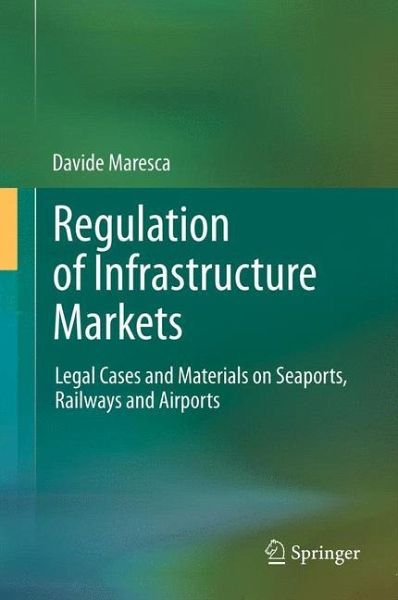
Regulation of Infrastructure Markets
Legal Cases and Materials on Seaports, Railways and Airports
Versandkostenfrei!
Versandfertig in 6-10 Tagen
76,99 €
inkl. MwSt.
Weitere Ausgaben:

PAYBACK Punkte
38 °P sammeln!
This casebook is an effort to explain infrastructure markets from a unique perspective: regulation. Regulation means the analysis of two main groups of laws, namely internal market and antitrust law. The aim is to find a uniform regulation applicable to infrastructures in the European common market through a direct reading and explanation of judicial opinions. The book is divided into five parts: two general chapters and three thematic chapters. The first chapter is an introduction to the main European law principles applicable to infrastructure markets. The second chapter applies the Services...
This casebook is an effort to explain infrastructure markets from a unique perspective: regulation. Regulation means the analysis of two main groups of laws, namely internal market and antitrust law. The aim is to find a uniform regulation applicable to infrastructures in the European common market through a direct reading and explanation of judicial opinions. The book is divided into five parts: two general chapters and three thematic chapters. The first chapter is an introduction to the main European law principles applicable to infrastructure markets. The second chapter applies the Services of General Interest doctrine to infrastructure markets: The key issue is the separation of the public administrations and the private companies operating infrastructures. The thematic chapters focus on seaports, railways and airports, respectively. The core of the examination is a dual perspective dealing with both the internal market rules and ensuring fair competition. This casebook is aneffort to explain the infrastructure markets under a unique perspective: the regulation. Regulation means the analysis of two main group of laws: Internal Market and Antitrust. The aim is to find a uniform regulation applicable to Infrastructures in the European common market, through a direct reading and explanation of judicial opinions. It is organized in five parts: two general chapters and three thematic chapters. The first chapter is an introduction to the main European law principles applicable to the infrastructures markets. The second chapter applies the Services of General Interest doctrine to the Infrastructure markets: the key issue is the separation between the public administrations and the private companies operating the infrastructures. The thematic chapters are referred, respectively, to seaports, railways and airports. The leitmotiv of the examination is the binary perspective: the Internal Market rules and the protection of fair Competition.














